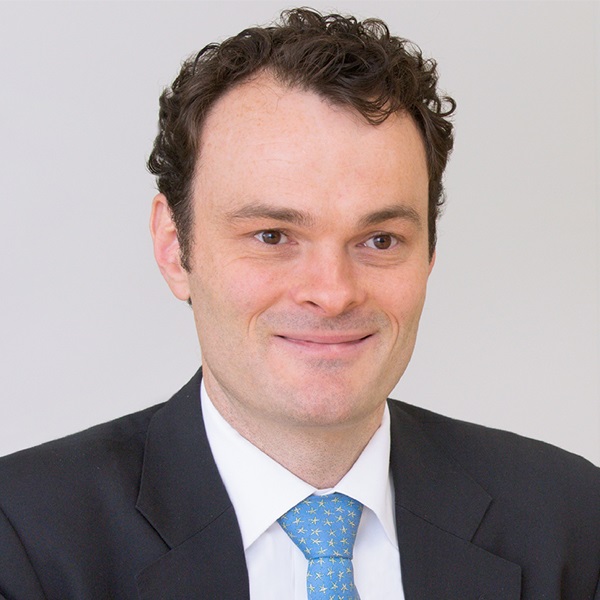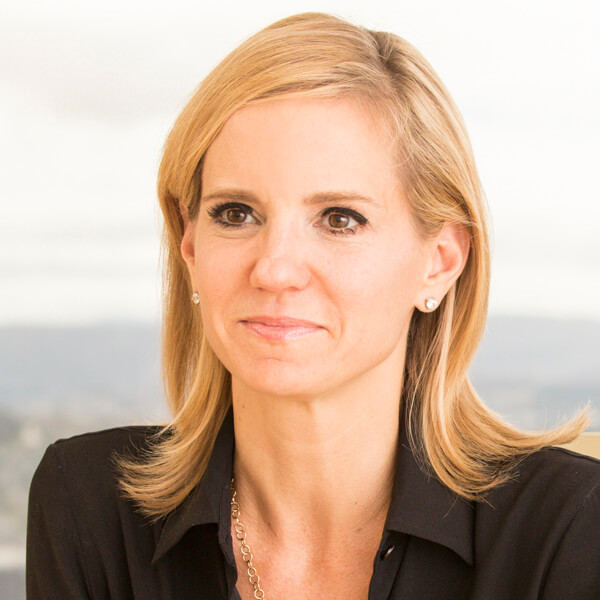Fixed Income
Market Volatility
On the surface, it seems unlikely that a 17th century Dutch painting would have much relevance in today’s volatile investment environment. But if you take a moment to look at Rembrandt’s masterpiece, “The Night Watch,” you may notice that every person depicted in the painting is looking in a different direction, each bringing a unique view to the gathering.
Flash forward nearly 400 years and “The Night Watch” is the inspiration for a multidisciplinary research team at Capital Group that seeks to gain a deeper understanding of market disruptions, assessing the risks and evaluating the opportunities that arise during times of extreme crisis. Not surprisingly, the group’s current focus is COVID-19.
“The goal of the Night Watch is to look at highly uncertain events, where the outcome is essentially unknowable, and study them from all angles,” explains Capital Group economist Jared Franz, who covers the U.S. and Latin America. “Like the people in the painting, we are looking out in all directions, evaluating all possible scenarios and considering all potential outcomes.”
.jpg)
Scenario planning, not predictions
"The No. 1 rule of the Night Watch is: Leave your preconceived notions at the door. Don’t start with what you think will happen, look at what could happen,” adds Julian Abdey, an equity portfolio manager and active participant in the group. "This is about evaluating the possible scenarios — from very negative to very positive — and understanding what each would mean for a variety of asset prices. At the end, it is up to the different investment units and individual portfolio managers and analysts to determine how probable each one is."
This concept goes to the heart of The Capital System℠, which relies on the multiple and diverse perspectives of Capital Group’s investment professionals, combined with independent, high-conviction decision-making. The Night Watch doesn’t make investment decisions on its own, but it helps inform the decisions of the larger organization.
Capital’s Night Watch team was formed in the aftermath of the 2008–09 global financial crisis to engage in scenario planning around severe recessions. In more recent years, the team explored the risk of rising corporate debt levels. This year, the group took on perhaps its most daunting crisis: the coronavirus outbreak and resulting government lockdowns that have triggered the worst economic downturn since the Great Depression.
Corporate debt dilemma
In the corporate debt analysis, the Night Watch team raised an early alarm about rising debt levels and deteriorating credit conditions in the U.S. corporate bond market.
Following the financial crisis, ultra-low interest rates and central bank bond-buying activities created an environment where many companies could borrow vast sums of money at historically low financing costs. The “hunt for yield” by some investors accelerated the process, encouraging companies to continue the borrowing binge despite a late-cycle economic environment. Even more worrisome: Companies with relatively low credit ratings accounted for more than 50% of the market last year.
.png)
“We could see that soaring levels of corporate debt were producing an imbalance in the economy,” says Franz — whose formula for anticipating a recession is equal parts late-cycle economy, rising imbalances and some catalyst to set it all off. “We worked closely with our fixed income team to quantify the downside risk in specific corporate bonds so they could make those investment decisions on a security-by-security basis.”
This approach to bond investing is an important part of maintaining a balanced and actively managed portfolio, explains fixed income portfolio manager John Queen.
“One of the real strengths of the Night Watch and other multidisciplinary research groups is the fact that we have multiple views — or multiple eyes, so to speak — on each problem,” Queen says. “We also have analysts who are investors, so when a crisis comes along, we already know the industries and the companies well, and we can act quickly if needed to address the unfolding events.”
Confronting the virus
In its ongoing coronavirus analysis, the Night Watch group has, again, studied the crisis from all angles, including the economic, market and health implications. The team has looked closely at many recession and recovery scenarios: V-shaped, U-shaped, W-shaped, L-shaped and even a Nike-style swoosh. In doing so, they’ve put together a weekly dashboard to help track in real-time which scenarios are more likely.
In terms of the U.S. economy, evidence is mounting for a U-shaped recovery, Franz says. Massive government stimulus measures are helping to soften the economic impact, but rising infection rates in many U.S. states are complicating the recovery effort. “There’s still a lot we don’t know about the virus, and I think the next few months are going to be tough,” Franz says. “But longer term, a year or so down the road, I think the chances of developing a vaccine are good, and that bodes well for a stronger recovery in late 2021 or early 2022.”
Indeed, global equity markets are telegraphing such a recovery, given the extraordinary rally since late March. From a historical perspective, that pattern has played out many times before as markets powered through previous outbreaks, including Swine flu, MERS, Ebola and the Zika virus.
.png)
Investment implications
Investing during the COVID-19 outbreak has, in some ways, accelerated trends that were already in place prior to the pandemic, such as the growth of e-commerce and cloud computing. The virus has hastened the decline of some companies, such as traditional retailers, that were already struggling to survive. But it has also devasted some industries that were previously doing well, particularly travel and tourism — meaning the outlook is very much sector-by-sector and company-by-company.
Companies such as Amazon, Netflix and Shopify have benefited greatly from the “stay at home” era, while companies such as Airbus, Boeing and Royal Caribbean have suffered. However, both scenarios may present compelling investment opportunities, notes equity portfolio manager Anne-Marie Peterson.
“My approach is more micro than macro, but there’s no question that the macro environment right now is creating a period of extraordinary change,” Peterson says. “Some companies are getting stronger, some are getting weaker and some are going away. I think what the Night Watch team highlights is that we have an incredible group of researchers that evaluates these macro events on a very deep level, helping us to understand the risks, and ultimately to act on the long-term investment opportunities that often emerge during times of crisis.”
Our latest insights
Hear from our investment team.
Sign up now to get industry-leading insights and timely articles delivered to your inbox.
Past results are not a guarantee of future results. The value of investments and income from them can go down as well as up and you may lose some or all of your initial investment. This information is not intended to provide investment, tax or other advice, or to be a solicitation to buy or sell any securities.
Statements attributed to an individual represent the opinions of that individual as of the date published and do not necessarily reflect the opinions of Capital Group or its affiliates. All information is as at the date indicated unless otherwise stated. Some information may have been obtained from third parties, and as such the reliability of that information is not guaranteed.
 Julian Abdey
Julian Abdey
 Jared Franz
Jared Franz
 Anne-Marie Peterson
Anne-Marie Peterson